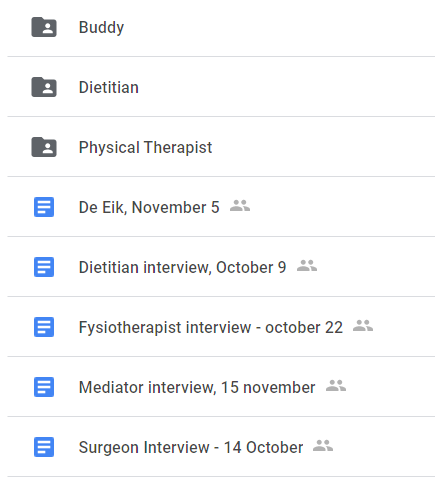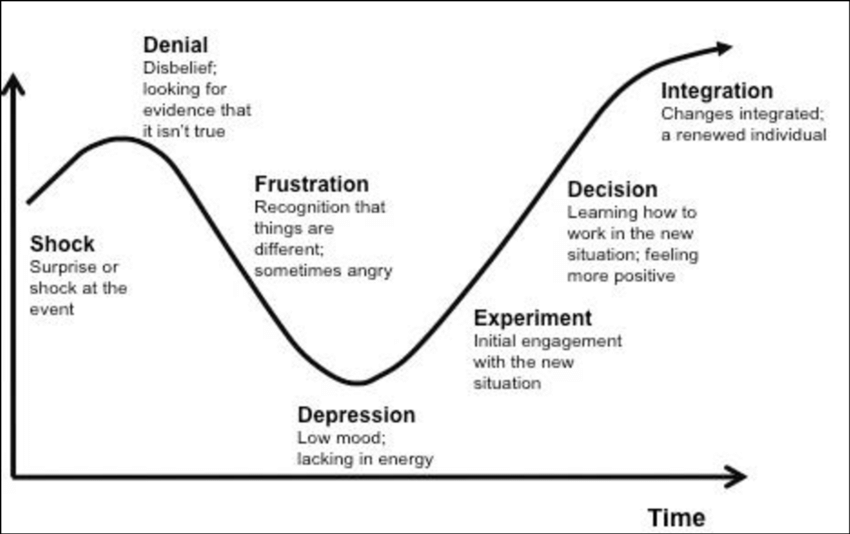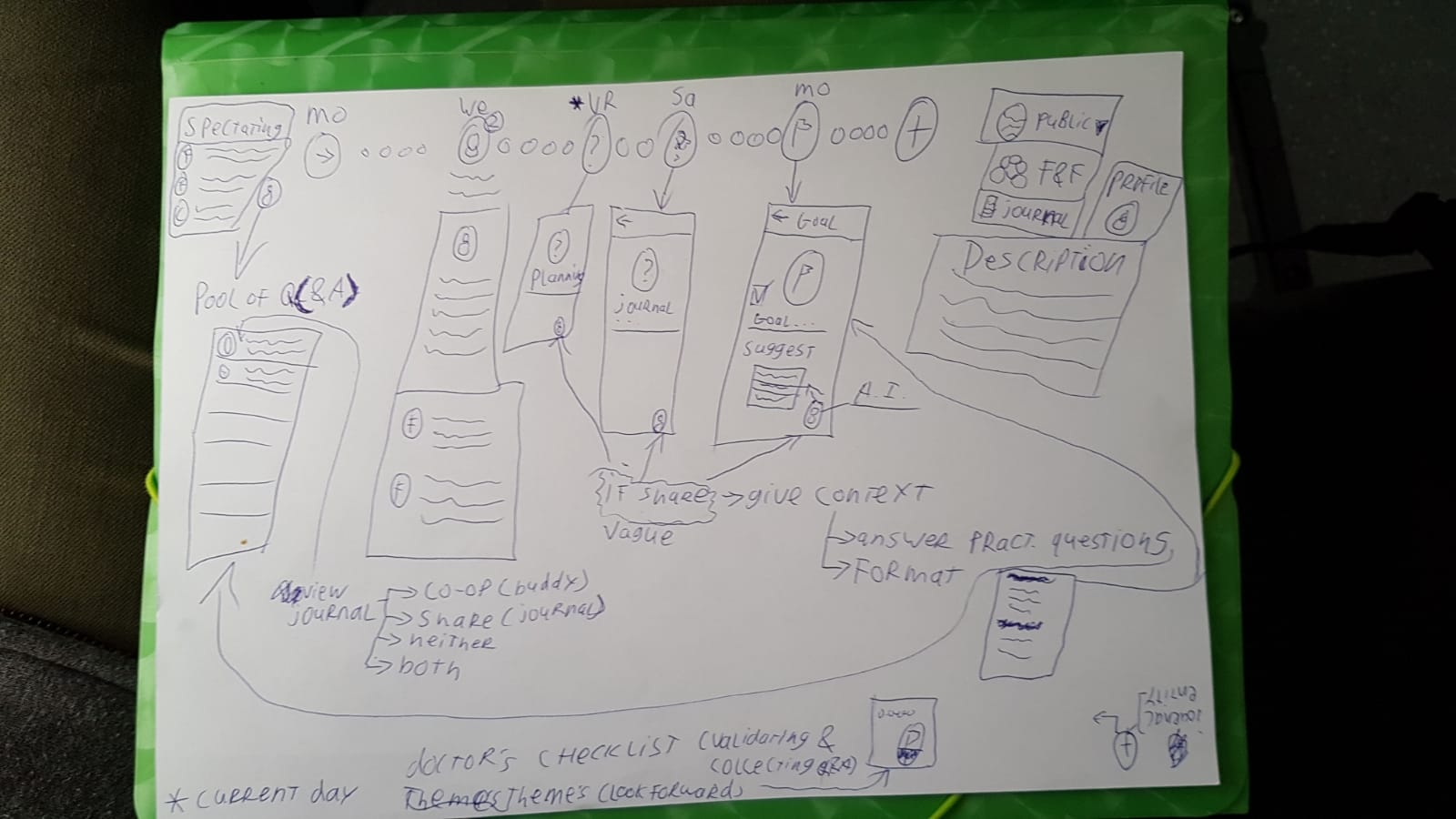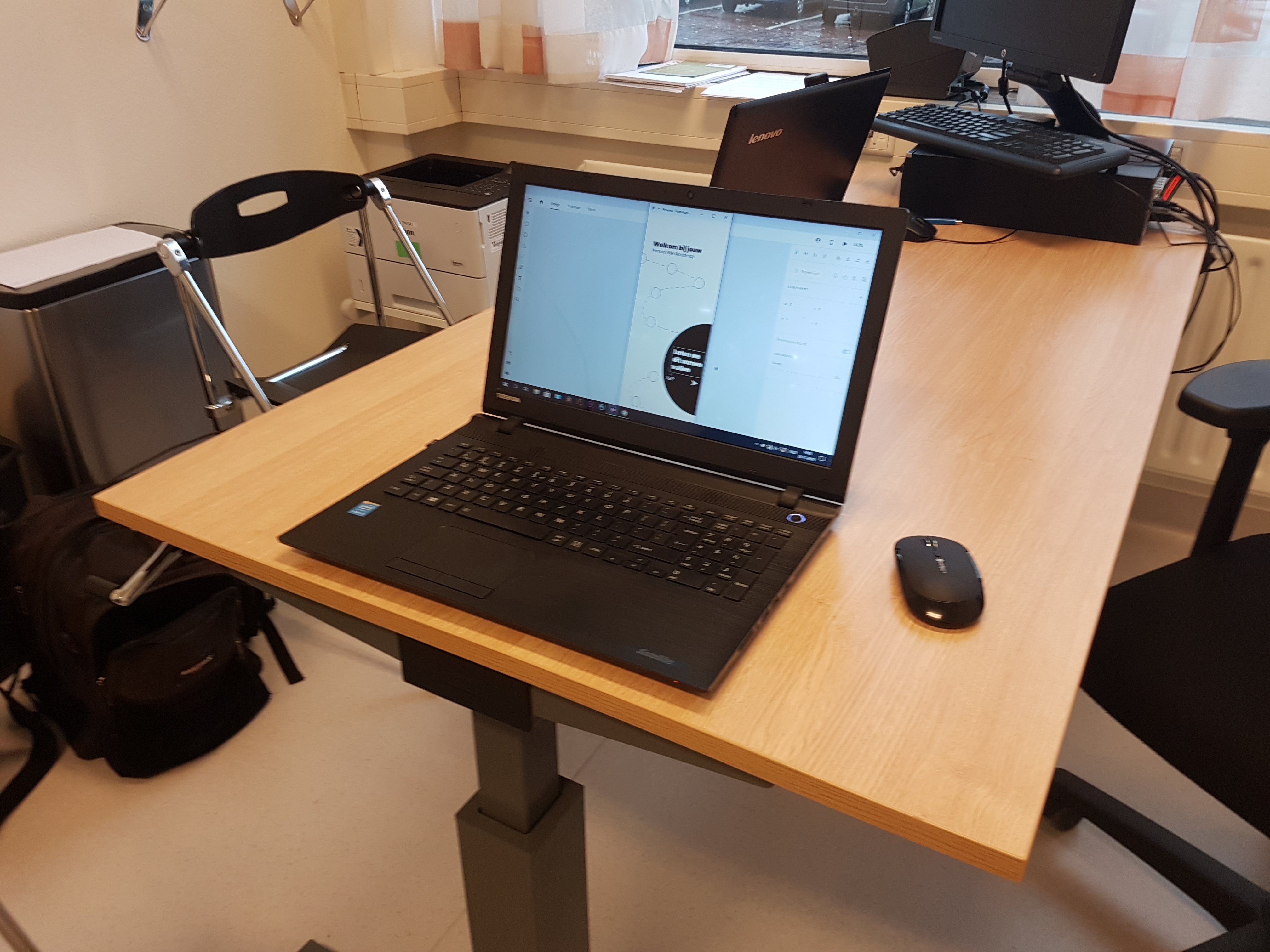Sprint 2: Collecting patient experiences
-
Patient interviews added context to the research we've gathered
Start sprint 2Every odd month on the first Tuesday, (ex-)patients gather at de Eik to share their experiences with esophageal cancer. Only a few group members got the opportunity to interview some patients who are willing to tell us what they experienced. I only got to hear summarized stories, so I didn't see them personally. However, they were all very surprised (or even in denial) that they got diagnosed with cancer. Most of them quickly adjusted to the lifestyle specialists suggested, which didn't turn out to be that easy.
We also got the opportunity to call-interview (ex-)patients from SPKS, a foundation that helps patients with cancer in digestive cannel (esophageal cancer). They took different care paths because of the specific treatment the hospital provides. They also started a project called "Buddy". An ex-patient personally visits a current patient and gives practical tips about the treatment and their self-management. We took this as a great inspiration source for our project.
-
Why SuP didn't become a mediator
Start sprint 2I got the opportunity to interview a law teacher from Avans, who is also a jurist and MfN-mediator (certified mediator). She told me about her mediation methods, theoretical models, practical examples and input we can use for our project. We combined her interview with the experiences of the Buddy-coordinator.
We noticed that patients weren't enthusiastic about having a digital solution for mediation and sharing experiences. Feedback from demo 2 suggests that a personal chatbot may cause inconveniences between users themselves and with the agent (this wasn't studied yet). Therefore, we choose to step aside from the mediation and to make a new prototype.
-
SuP became a thing and we are proud of it
Halfway sprint 2After we did an expert review with Don, we found out that we can focus more on the patient experiences and sharing ability. That's why we tried to make something like a journey or PolarSteps. My main philosophy behind the app is: "Look back at the past, and forward to the future". The conversational agent serves as a practical tool and won't be the main functionality of the application. SuP will only be capable of sharing experiences and give information based on what the PIM and specialists stated.
After this phase, I felt like we found something that all project members were very enthusiastic about it. The concept was clear enough to be visualized (and maybe realized). We worked on the application as a close group.
-
Patients (and specialists) were free to join our tests
Before and during Demo 3We made a mid fidelity prototype to showroom by pitching our roadmap idea with patients at the hospital during the polyclinic. It was a clickable wireframe on how the app would show the tutorial to get started with the app. We assumed that the app has 4 benefits (USPs): goal-orientated, sharing with family, involving family and sharing with other patients. However, it turned out that most patients weren't able to test (medical and personal reasons). It disappointed me that we only got to test with three test persons.
On the bright side, their findings confirmed that this application could help patients to share their experiences with friends and family. However, it was unclear whenever patients would like to share experiences with others. We presented our findings into Demo 3 (which includes screenshots with our prototype) and continued working on the roadmap and SuP as assistant.



